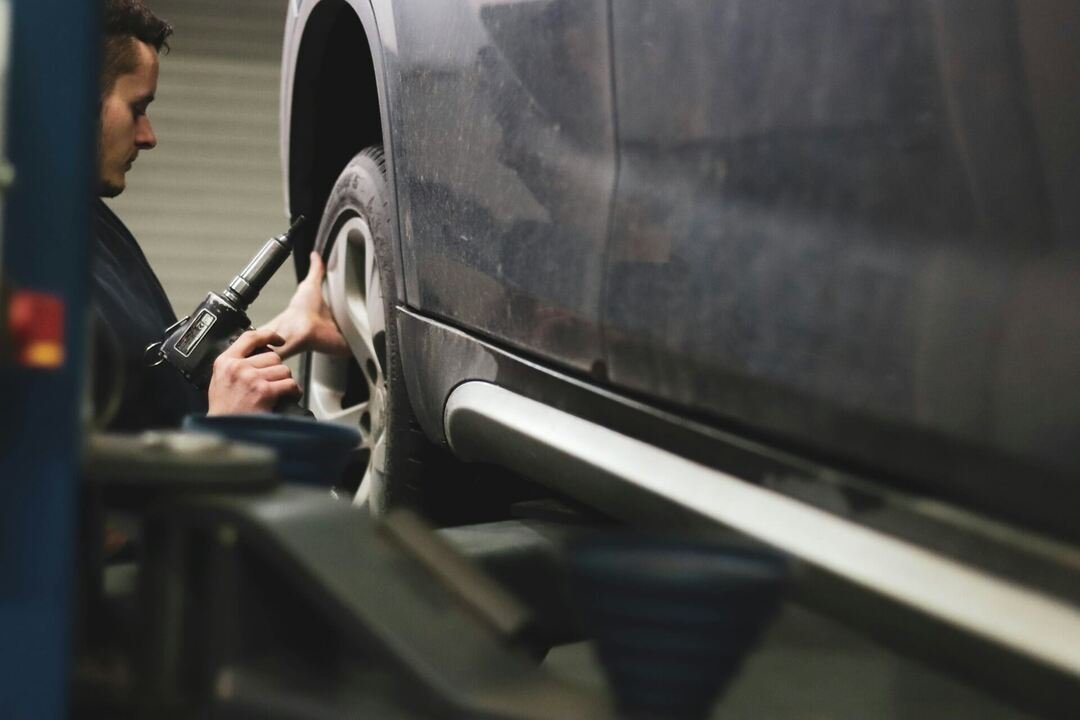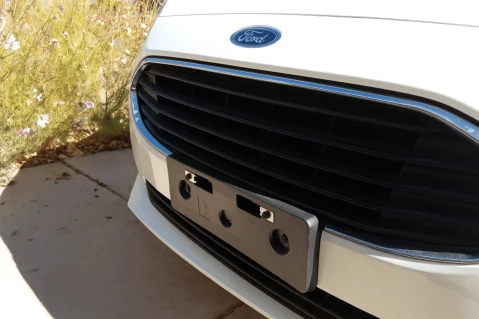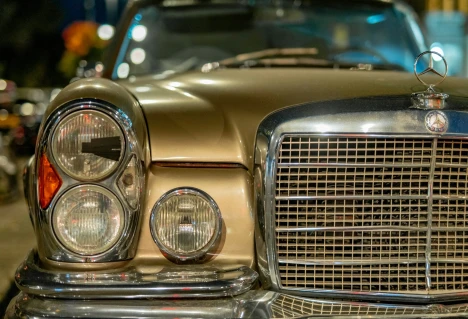Not all used vehicles are created equal. In a market flooded with choices, buyers often search for that sweet spot between quality and value. Many potential buyers wonder: What is a certified pre-owned car? It's a question that surfaces the moment someone wants more assurance about a car's condition before making a purchase. Whether it’s a sporty sedan or a family-ready SUV, no one wants to spend hard-earned money on something that breaks down a week after being sold. Tires worn out? Battery dead? Engine knocking? Those should’ve been replaced long before hitting the lot. That’s where the real difference starts to show.
Definition of a Certified Pre-Owned Car
The certified pre-owned meaning goes beyond just a clean exterior and low mileage. A CPO vehicle is a used car of a special category. Its condition has been assessed by a manufacturer or dealer. It often comes with an extended warranty, roadside support, and service perks, which differentiate it from standard used cars. Thanks to such features, a new owner can avoid unexpected costs. In general, this is a more secure purchase without jumping into new-car pricing.
Choosing between a new and used car is often challenging. However, a certified pre-owned vehicle offers a balance that practical buyers will appreciate. Certainly, it may cost more than a typical used car. Nevertheless, the added protection and vehicle reconditioning bring peace of mind. The goal is to minimize risks and extend the car’s useful life, so the next owner gets reliability without overspending. In many cases, it's a smarter long-term investment than buying new.
CPO vs Used Cars
When comparing certified pre-owned vs used options, it helps to understand the differences that can impact value, access to services, and long-term reliability. Here's a breakdown that highlights how most CPO vehicles stand apart from regular used cars:
| Feature | Certified Pre-Owned (CPO) | Used Car |
| Inspection by Mechanic | Yes – thorough and standardized | Varies – often skipped |
| Warranty Coverage | Included by the dealership or brand | Not usually included |
| Vehicle Age and Model | Newer models only | Any age or model |
| Access to Service Perks | Included (roadside, maintenance) | Not included |
| Bill of Sale for a Car | Provided with certification | Standard bill of sale only |
| Benefit to Buyer | Lower risk, more peace of mind | Lower upfront cost, more risk |
The Certified Pre-Owned Inspection Process

Before a car earns the title of a CPO vehicle, it must undergo a detailed evaluation that often includes over 100 points. Many programs require a clean vehicle history report and demand that every component be inspected for safety, performance, and wear.
What Gets Checked — And What Doesn’t
- Brakes, suspension, and steering.
- Engine performance and transmission.
- Interior features like air conditioning and electronics.
- Tires, wheels, and alignment.
- Paint quality and glass condition.
- Vehicle history report for accidents or flood damage.
- Some cosmetic imperfections may be overlooked.
- Accessories or aftermarket modifications might not be covered.
Who Performs the Certification?
Only dealer technicians trained to the manufacturer’s standards can approve a CPO car. These factory-trained mechanics follow strict checklists to ensure every truck, SUV, or sedan meets the brand’s specific requirements. Many programs even require that parts be replaced with original components during reconditioning. Buyers can be sure that the professional has inspected and restored the car.
How to Verify a Real Certified Pre-Owned Vehicle
Someone may wonder: What does CPO stand for when browsing dealer lots? It means the car meets strict criteria set by the manufacturer, but not every shiny car labeled as such truly qualifies. To avoid mistaking a non-CPO vehicle for the real deal, always check the paperwork and use tools like a VIN decoder to verify its status. This step can save thousands in expensive repairs later. For example, a dealer might claim a vehicle is CPO, yet skip the official inspection or warranty registration. Don’t rely on trust alone — proof lies in the documents and the VIN-backed confirmation from the automaker.
The Pros and Cons of Certified Pre-Owned Cars Most Buyers Overlook
Pros:
- One of the key benefits of certified pre-owned models is added security, backed by a manufacturer’s warranty
- Roadside assistance often comes standard, offering help when stranded or dealing with a flat tire
- A CPO program ensures that vehicles meet strict mileage and condition standards before being sold
- Buyers receive a vehicle that has been thoroughly inspected and reconditioned by experts
- Peace of mind comes with knowing the car has passed manufacturer-level checks
- Financing rates are usually better than those offered for ordinary used cars
Cons:
- CPO models often carry a higher price tag compared to similar non-certified options
- Some buyers take the dealer’s word without verifying what the CPO program actually includes
- Extended warranties might overlap with what’s left of the original, offering less value than expected
- Fewer choices in terms of model, trim, or color when limited to certified inventory
- The certification process varies by manufacturer, so quality can differ from one brand to another
How CPO Affects Your Financing and Insurance
Financing a CPO car often comes with better terms than buying a standard used vehicle. Lenders see lower risk in a model that’s passed a detailed inspection and includes a manufacturer-backed warranty. Some banks even treat it like new when setting rates. Since the vehicle is usually newer and well-maintained, it may not carry the same financial red flags as an older car with unknown issues or a vehicle with a lien.
When it comes to insurance, CPO coverage can influence the premium. A car that’s been inspected and covered under a manufacturer-backed warranty may qualify for lower rates. CPO insurance plans can also offer extras like gap protection or mechanical breakdown coverage. This adds another layer of protection beyond standard auto insurance. While policies vary, the overall value comes from knowing that both the warranty and insurance offer protection tailored to a vehicle already vetted by professionals.
Certified Pre-Owned vs Leasing a New Car

If you choose between CPO cars and leasing a new car, rely on your priorities. This may be long-term ownership, monthly costs, or access to the latest features. Various options highlight the key distinctions in cost, value, and market flexibility:
| Factor | CPO Cars | Leasing a New Car |
| CPO Cost vs Lease Cost | Higher upfront but lower over time | Lower monthly payments but no equity |
| Market Flexibility | Can be sold or traded anytime | Locked into terms with penalties |
| Vehicle Ownership | You own the truck or car | You return the vehicle after the lease |
| Benefit to Driver | Long-term value and fewer restrictions | Access to new models every few years |
| Priced Compared to New | Less than a new car with similar features | Priced for use, not ownership |
Mistakes to Avoid When Buying a Certified Pre-Owned Vehicle
Don’t rush with a purchase. Otherwise, you can face surprises if you miss the program details. Some buyers assume all used car warranties are the same. However, coverage varies widely by brand. To save money on car insurance and repairs, first of all, verify what’s covered, as well as how the vehicle meets the required rules.
- Skipping the warranty fine print.
- Ignoring the vehicle’s mileage limits for coverage.
- Trusting verbal promises instead of documented proof.
- Not checking if the vehicle is an actual example of a brand-backed program.
- Assuming every used car at a dealership is automatically covered.
- Forgetting to compare insurance quotes before finalizing the deal.
What Happens If a Certified Pre-Owned Car Breaks Down?
If a CPO vehicle breaks down, you need to follow a specific algorithm. First, check whether the issue falls under the coverage of the CPO program. Most breakdowns that occur after the car is sold are handled through the manufacturer-backed warranty. This is the central advantage of choosing this type of vehicle.
Second, pay attention to the location. Repairs are typically completed at authorized dealerships that utilize only original parts. This helps minimize extra expenses and ensures high-quality work.
Third, don’t forget to review the warranty terms. Under a well-structured CPO program, buyers won’t face unexpected issues, such as financial stress, shortly after the purchase.
Can You Negotiate the Price of a CPO Car?

For many buyers, CPO cars have fixed pricing. However, that is not entirely true. Feel free to negotiate when buying a car. Start by checking the vehicle history report. Then, compare common values for similar cars. The automobile might have been on the lot for a while or lack certain features. In such cases, dealers may be more flexible during the sales process.
Negotiation can imply discussing various aspects. Ask for extras like free maintenance, a longer roadside assistance term, or even reduced dealer fees. Since CPO cars already include added value, some salespeople hesitate to drop the price. However, bringing up comparable listings or pointing out minor flaws can give you leverage. The key is staying respectful but firm. Dealers want to close the deal, and with the right timing and information, your purchase can include both a fair price and a few extra perks.
Summary
A CPO vehicle bridges the gap between a new and used car, offering the benefit of added confidence without the full cost of something brand new. A detailed inspection process and a manufacturer-backed warranty help buyers gain protection that standard used cars rarely provide. Certainly, the price may be slightly higher. Nonetheless, the long-term value can far outweigh the difference. Those car owners who seek reliability, support, and peace of mind will certainly choose a CPO purchase.
Frequently Asked Questions
Not necessarily. For a vehicle to be regarded as CPO, a detailed inspection is needed. Meeting the required standards is an obligatory condition. In the past, the car may have had minor repairs or cosmetic damage. Thus, consider checking the vehicle history report to find out whether any accidents were recorded.
Yes. The sale price, as a rule, includes the cost of the certification process.
Absolutely. The manufacturer-backed warranty is a CPO vehicle’s primary advantage. It often extends beyond the original coverage. Terms vary by make; thus, read the warranty details carefully.
Returns are allowed only if the dealer offers a specific return window/exchange policy. Consider verifying all the details before completing the purchase. This will help avoid surprises.
Yes. Nevertheless, approval depends on the lender. Additionally, the strength of your overall financial profile may be an essential criterion. Your chances can increase in case of a larger down payment and proof of income.







